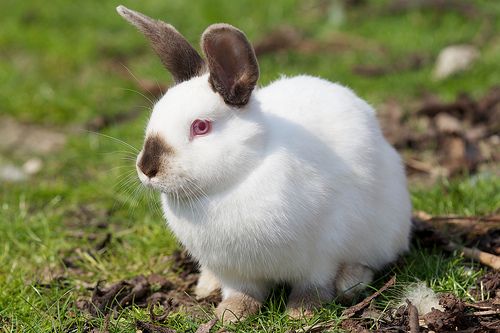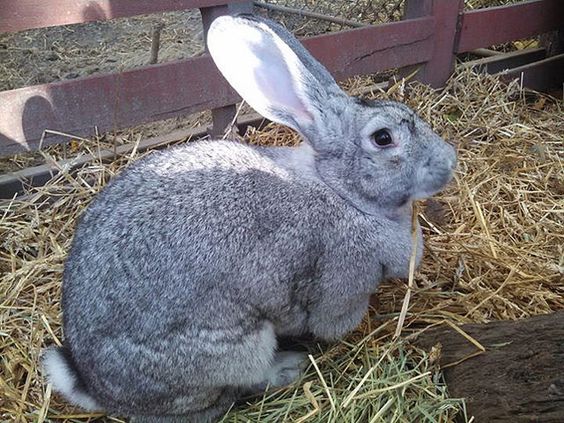
Starting a rabbit farming business in Nigeria holds great potential for various reasons. Success stories from rabbit farmers across Africa underscore the untapped market opportunities in this sector. Here are five compelling reasons to consider rabbit farming:
- Growing Market Demand:
The market for rabbits is expanding due to increasing demand for white meat. Health-conscious consumers are shifting away from red meats like beef and pork, given the heightened awareness of cholesterol’s harmful effects in the African diet. Rabbits are lauded for their high protein and low-fat content, with fewer calories and sodium but more calcium and phosphorus, making them a healthier alternative. Additionally, every part of the rabbit can be utilized, from high-quality skins for fur garments to meat and bones. The versatility of rabbit products extends to medical, cosmetic, and pharmaceutical research laboratories, further broadening market applications. The rising demand for rabbits as pets, as evidenced by online platforms like jiji.ng, indicates a substantial market. - High Multiplication Rate:
Rabbits exhibit rapid growth, reaching maturity and market size in six months or less. Their efficiency in converting food contributes to this fast growth rate. With rabbits breeding throughout the year, a pregnant doe can give birth to kits within thirty to thirty-five days. Given their polygamous nature, starting with one male and two or more does can result in a significant rabbit population by the end of the year. This prolific multiplication rate translates into higher yields and increased profits for farmers. - Low Initial Investment:
Rabbit farming is ideal for small-scale farmers or entrepreneurs seeking a low-cost venture. Starting with just two rabbits, the initial setup requires minimal investment. Unlike other livestock, rabbits do not demand extensive space, allowing farmers to begin with basic wooden and chicken wire cages. As profits accumulate, farmers can gradually upgrade to more sophisticated hutches. - Low Labor Intensity:
Compared to poultry or cattle farming, raising rabbits is not labor-intensive. Rabbits are quiet, tame, and less susceptible to infections and diseases. Their relatively straightforward dietary needs make rabbit farming suitable for part-time operations, providing flexibility for farmers with other commitments. - Health Benefits of Rabbit Meat:
Rabbit meat offers various health benefits, making it an attractive choice for consumers. Some key advantages include:
- Low Cholesterol: Rabbit meat has lower cholesterol concentrations than pork, turkey, chicken, and beef.
- Reduced Fat Content: It contains less fat than turkey, beef, and pork.
- Heat-Neutral: Especially recommended during hot months as it lacks the heating properties of other meats.
- Suitable for Special Diets: Certified for diets tailored to individuals managing diabetes and/or hypertension.
- High Protein Content: Rabbit meat boasts the highest protein content among all meats, accompanied by a high level of unsaturated fatty acids.
By leveraging these reasons, rabbit farmers can develop effective marketing strategies to capitalize on the health-conscious market and the versatility of rabbit products.
Establishing a Successful Rabbit Farming Venture in Nigeria
Embarking on a rabbit farming business in Nigeria requires careful consideration and strategic planning. Prospective investors should prioritize acquiring comprehensive knowledge about rabbit farming, selecting appropriate rabbit breeds, and securing the services of a qualified veterinary doctor
Step 1: Learn About Rabbit Farming
Before diving into the venture, it is imperative to gather information about rabbit farming. This involves studying common diseases, feeding patterns, gestation periods, and overall best practices. Connecting with experienced rabbit farmers, exploring free online resources, manuals, and videos can provide valuable insights and guidance, helping to avoid potential challenges arising from diseases and high mortality rates.
Step 2: Choose the Right Rabbit Breed
Selecting the appropriate rabbit breed is crucial for success in commercial farming. Certain breeds, such as New Zealand White, Californian, and Chinchilla, are known for their suitability in meat production due to their larger size and faster growth. Show rabbits, being smaller in size, are better suited for pets or fur production, making them unsuitable for commercial meat farming.
Step 3: Engage a Veterinary Doctor
Securing the services of a qualified veterinary doctor is non-negotiable for successful rabbit farming. Regular checkups, vaccinations, and expert advice on feeding and nutrition contribute to the overall health and well-being of the rabbits, ensuring a thriving livestock farming venture.
Essential Materials for Rabbit Farming:
To establish a rabbit farm, certain materials are indispensable:
- Cages or Hutches: Constructed to protect rabbits from heat and humidity, providing a suitable living environment.
- Rabbit Feeders and Drinkers: Essential for supplying rabbits with proper food and water.
- Kids/Baby Rabbits: A minimum of two rabbit kids is recommended to start, with the option to expand based on available space and resources. Kits should ideally remain with their mothers for at least eight weeks to develop proper immune and digestive systems.
Rabbit Feeding:
Rabbit feeds can include processed feed, edible dark leafy vegetables, leaves, elephant grass, potatoes, and various herbs. A balanced diet may also consist of quality pellets rich in fiber, fresh hay, and access to clean water. Hay is particularly crucial for maintaining good rabbit health, preventing hairballs, and minimizing blockages.
Commercially Viable Rabbit Breeds in Nigeria:
- New Zealand White: A white-colored breed weighing 3 to 5 kg when mature.

- Californian: The second most popular meat production breed, characterized by an all-white coat with black tips on the nose, ears, feet, and tail, weighing between 3 and 4.5 kg when mature.

- Chinchilla: A blue-grey breed with a distinctive thick fold around the chest when in good health, weighing between 3 and 4.5 kg when fully grown.

Establishing a rabbit farming business in Nigeria requires thorough research, careful breed selection, and the guidance of a veterinary professional. By following these steps and investing in essential materials, prospective farmers can lay a solid foundation for a successful and sustainable venture in rabbit farming.
Understanding Symptoms and Implementing Prevention Measures Of Rabbit Diseases
Rabbits, like other livestock, are susceptible to various diseases. However, with vigilant monitoring and early detection, farmers can prevent many common rabbit ailments. This article explores prevalent rabbit health issues, their symptoms, and effective prevention methods.
- Hairballs (Trichobezoars):
Hairballs occur when self-groomed rabbit hair accumulates in the stomach, causing obstructions. While there’s no foolproof prevention, maintaining a high-fiber diet reduces the risk. Treatment may involve medications or, in severe cases, surgical intervention. - Pasteurellosis/Snuffles:
This bacterial infection affects the eyes, nose, and ears, leading to various symptoms. To prevent its spread, sick rabbits should be separated, and treatment involves a prolonged course of antibiotics. - Uterine Tumors (Uterine Adenocarcinoma):
Female rabbits may develop uterine tumors, presenting symptoms like blood-stained discharge and behavioral changes. Prevention involves desexing, while early detection allows for effective treatment before the cancer spreads. - Overgrown Teeth:
Rabbits’ teeth continually grow, risking overgrowth if not properly worn down. Ensuring 80% of the diet is fiber, supplemented with leafy greens, helps prevent overgrown teeth. Veterinary intervention may be required to address the condition. - Myxomatosis:
Transmitted through mosquitoes, fleas, or contact with infected rabbits, myxomatosis results in swelling and discharge from eyes, nose, and genital areas. Prevention involves mosquito-proof housing, but unfortunately, there is no cure once a rabbit is infected. - Calicivirus:
Spread by mosquitoes or direct contact, calicivirus damages internal organs and causes hemorrhage. Vaccination is available for prevention, and mosquito-proof housing is advisable. Unfortunately, there is no cure if a rabbit becomes infected.
Marketing Strategies for Rabbit Farms in Nigeria:
a. Initial Awareness:
Begin by creating awareness among friends, family, and colleagues about your rabbit farm.
b. Establishing Connections:
Reach out to restaurants, hotels, eateries, and supermarkets that may be interested in purchasing rabbit meat in bulk.
c. Educational Outreach:
Educate potential clients about the nutritional value of rabbit meat and its economic benefits.
d. Diversification:
Explore partnerships with fur industries and other end users of rabbit products to expand your market reach.
By understanding common rabbit diseases, their symptoms, and effective preventive measures, farmers can ensure the health and well-being of their rabbits. Additionally, implementing strategic marketing plans can help rabbit farmers generate income and build sustainable businesses in Nigeria.

I sincerely enjoyed what you’ve accomplished here. The sketch is fashionable, your written content chic, yet you appear to have developed some apprehension regarding what you aim to offer thereafter. Certainly, I shall return more frequently, just as I have been doing almost constantly, should you uphold this upswing.